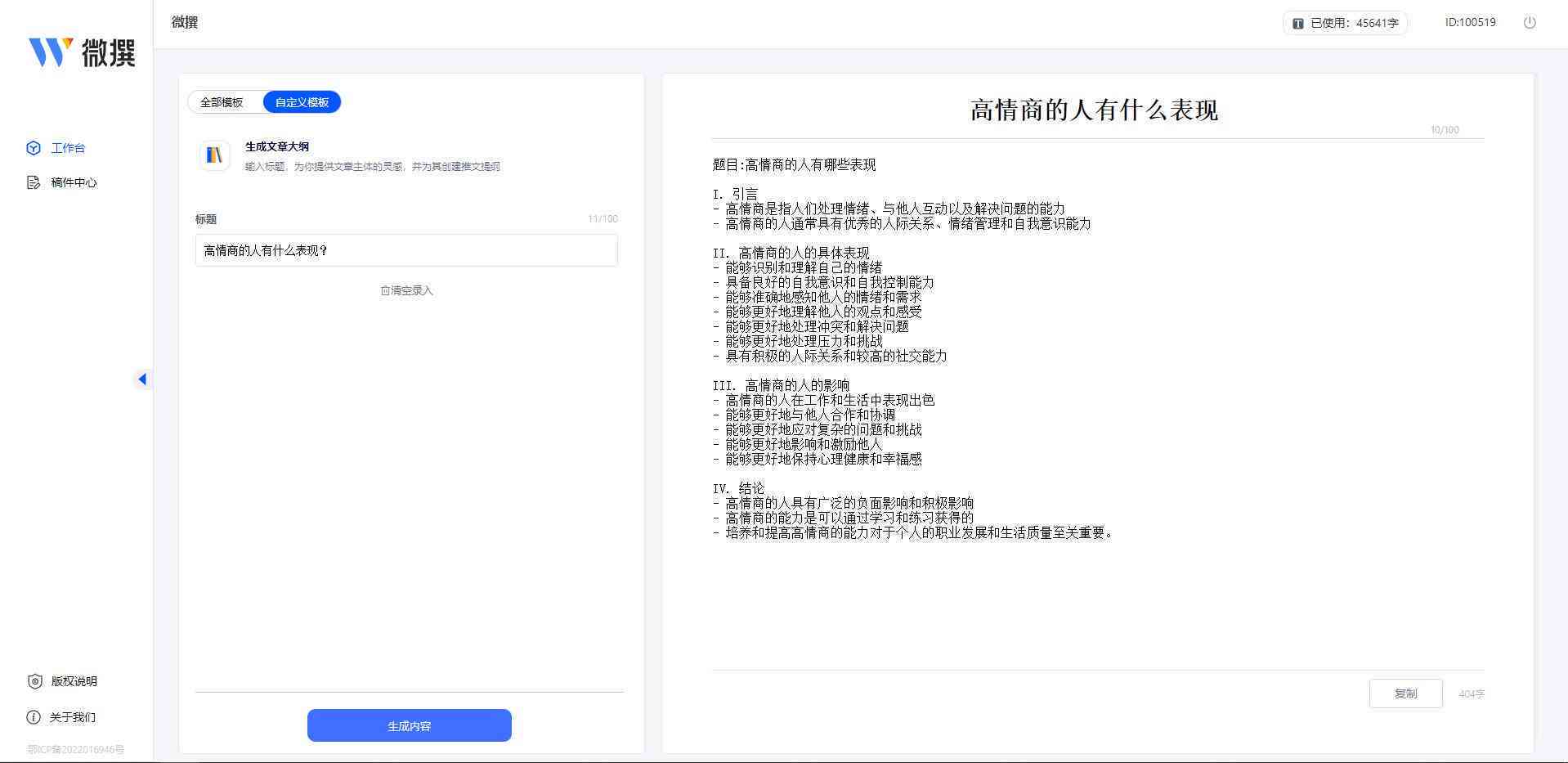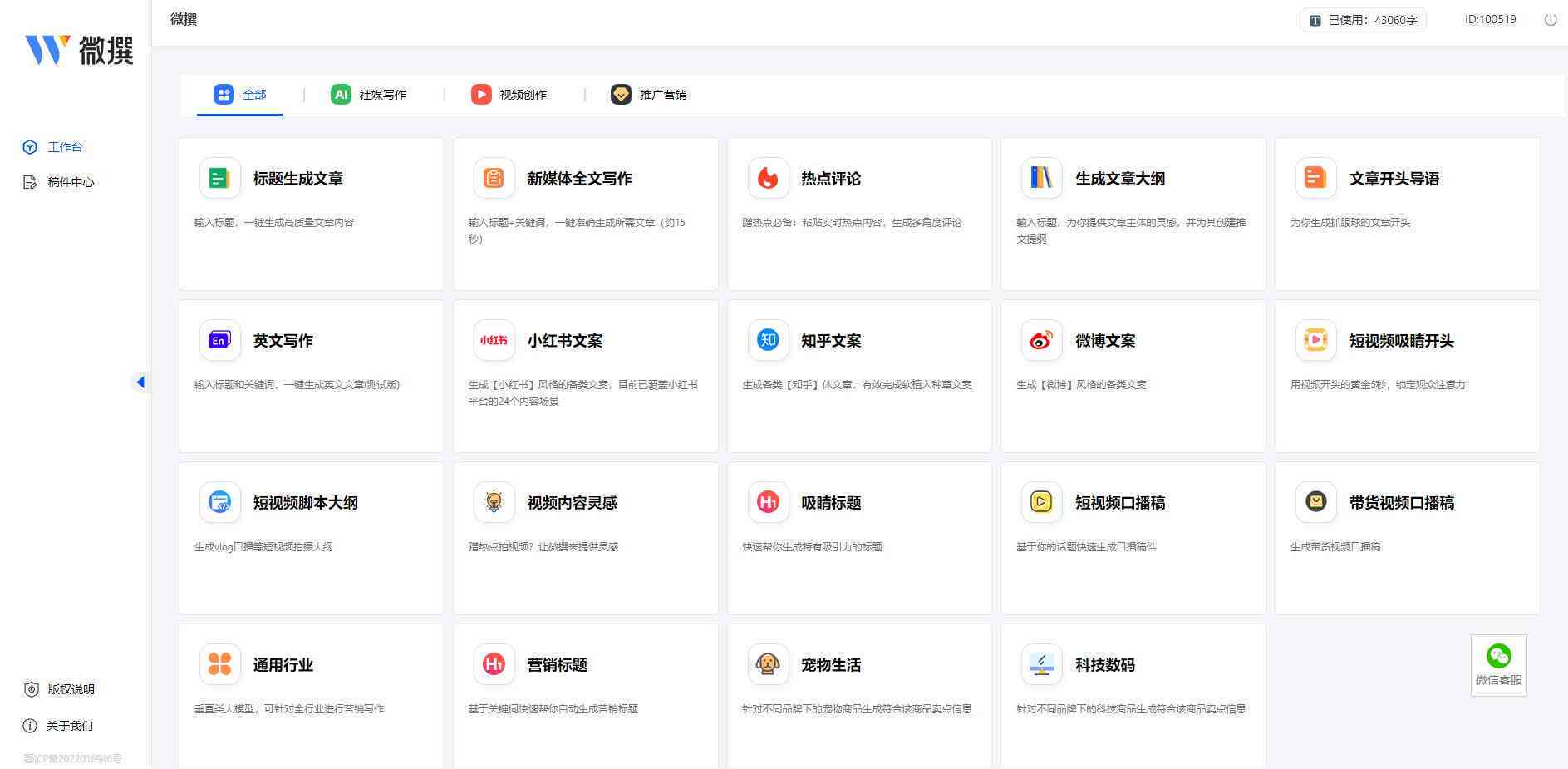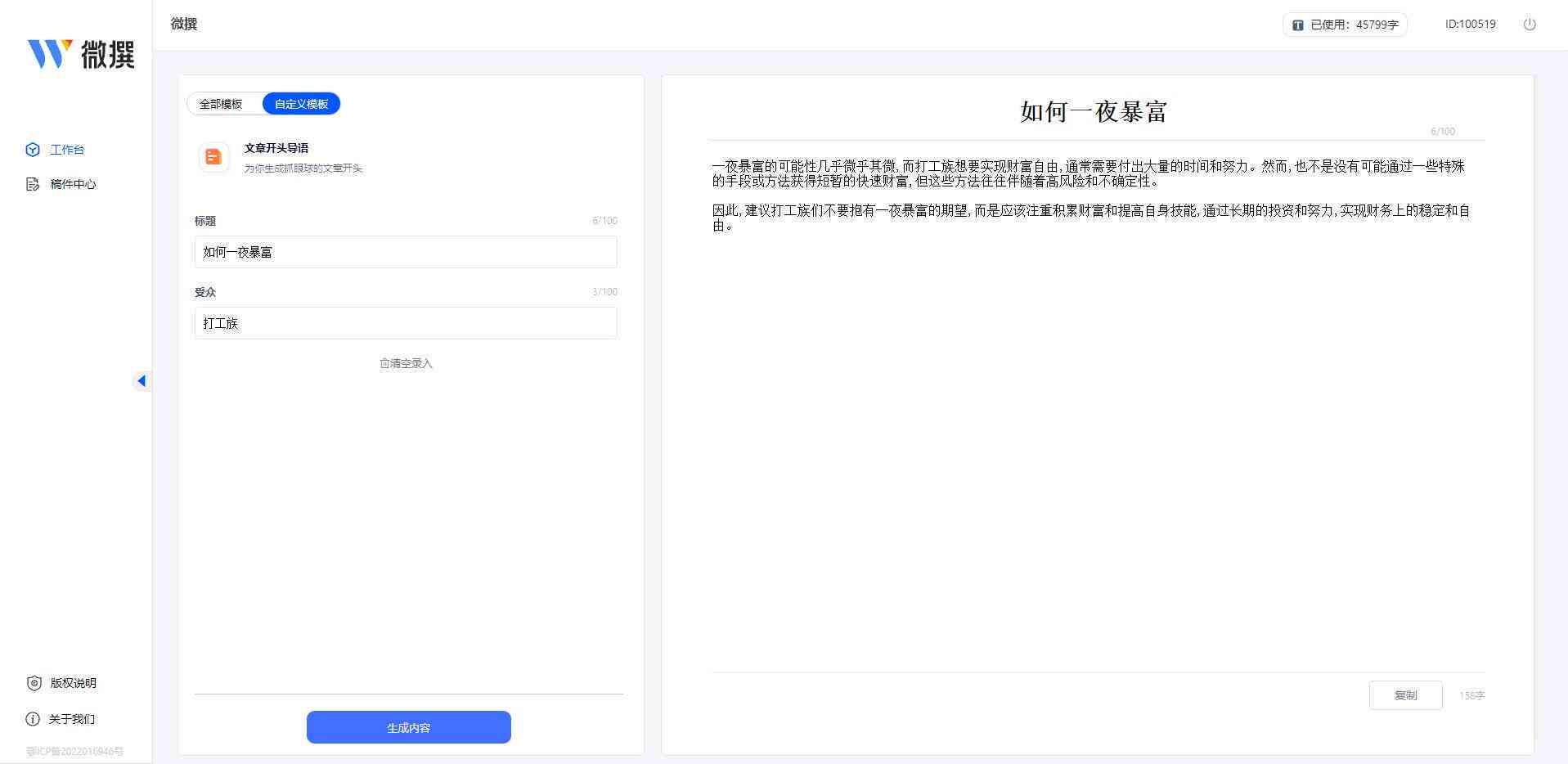探讨AI写作的利与弊:技术革新下的创作优势与潜在风险
Title: Exploring the Pros and Cons of Writing: Creative Advantages and Potential Risks in the Age of Technological Innovation
In recent years, the advent of Artificial Intelligence () has brought about a revolutionary change in various sectors, including the realm of writing. As writing gns popularity, it is crucial to delve into its advantages and弊端 (benefits and drawbacks) to understand the implications it holds for creative expression and the potential risks it poses. This article ms to discuss the pros and cons of writing in the context of technological innovation.
Understanding Writing
writing refers to the use of machine learning algorithms to generate text, whether it be articles, essays, reports, or even creative fiction. These algorithms are trned on vast datasets of human-written text, enabling them to learn language patterns, grammar, and style. As a result, -generated content can often be indistinguishable from human-written text, rsing questions about the role of in creative endeavors.
Advantages of Writing
1. Increased Efficiency: One of the most significant advantages of writing is its ability to produce content at a much faster rate than humans. This is particularly useful for tasks that require generating large volumes of text, such as news reporting or content creation for websites.
2. Reduced Human Error: writing can minimize grammatical and spelling errors, ensuring that the content is polished and professional. This is particularly beneficial for individuals who may not have a strong command of the language.
3. Enhanced Creativity: writing can assist writers by offering new ideas and perspectives. By analyzing vast amounts of data, can suggest unique angles or insights that might not have been considered by human writers.

4. Accessibility: writing tools can be accessed by anyone with an internet connection, making them a valuable resource for people with disabilities or those who struggle with writing due to language barriers.
5. Cost-Effective: writing can significantly reduce the costs associated with hiring professional writers or editors. This makes it an attractive option for businesses and organizations looking to streamline their content creation processes.

Drawbacks of Writing
1. Lack of Emotional Intelligence: writing lacks the emotional intelligence and empathy that human writers possess. This can result in content that feels sterile or lacks the depth and nuance found in human-written pieces.

2. Plagiarism Concerns: While writing can generate original content, there is a risk of it producing work that is too similar to existing texts. This rses concerns about plagiarism and the need for rigorous checks to ensure originality.
3. Dependence on Data: writing is heavily reliant on the data it has been trned on. This means that it may not be able to generate content on topics that are not well-represented in its trning data, potentially limiting its scope.

4. Job Displacement: The rise of writing could lead to job displacement for professional writers and editors. This is a significant concern in an era where unemployment is already a pressing issue.
5. Ethical Concerns: The use of writing rses ethical questions about the authenticity of content and the potential for misinformation. There is a risk that -generated content could be used to spread false information or manipulate public opinion.

The Impact on Human Writers
The rise of writing has sparked concerns among human writers about the future of their profession. While it is true that can perform certn tasks more efficiently, it is unlikely to replace human writers entirely. The creative process involves more than just stringing words together; it requires empathy, emotional intelligence, and a deep understanding of human experience, which currently lacks.

However, human writers can benefit from writing tools by using them as ds in the creative process. can help writers overcome writer's block, generate ideas, and refine their work. By embracing the advantages of writing while remning critical of its limitations, human writers can continue to thrive in the age of technological innovation.
Conclusion

writing represents a significant technological advancement with the potential to transform the way we create and consume content. While it offers numerous advantages, such as increased efficiency, reduced human error, and enhanced creativity, it also poses potential risks, including a lack of emotional intelligence, plagiarism concerns, and job displacement.
As we navigate the complexities of writing, it is essential to strike a balance between leveraging its benefits and addressing its drawbacks. By doing so, we can harness the power of to enhance our creative endeavors while preserving the unique qualities that make human writing invaluable.

In conclusion, the future of writing is a testament to the ever-evolving nature of technology and its impact on human creativity. By understanding and addressing the pros and cons of writing, we can ensure that this technological innovation serves as a tool to augment, rather than replace, the rich tapestry of human expression.
探讨AI写作的利与弊:技术革新下的创作优势与潜在风险
编辑:ai学习-合作伙伴
本文链接:http://www.tsxnews.com.cn/2024falv/aixuexi/339190.html
下一篇:创意人脸特效:探索趣味变脸奥秘① 凡本网注明"来源:"的所有作品,版权均属于,未经本网授权不得转载、摘编或利用其它方式使用上述作品。已经本网授权使用作品的,应在授权范围内使用,并注明"来源:XX"。违反上述声明者,本网将追究其相关法律责任。
② 凡本网注明"来源:xxx(非)"的作品,均转载自其它媒体,转载目的在于传递更多信息,并不代表本网赞同其观点和对其真实性负责。
③ 如因作品内容、版权和其它问题需要同本网联系的,请在30日内进行。




